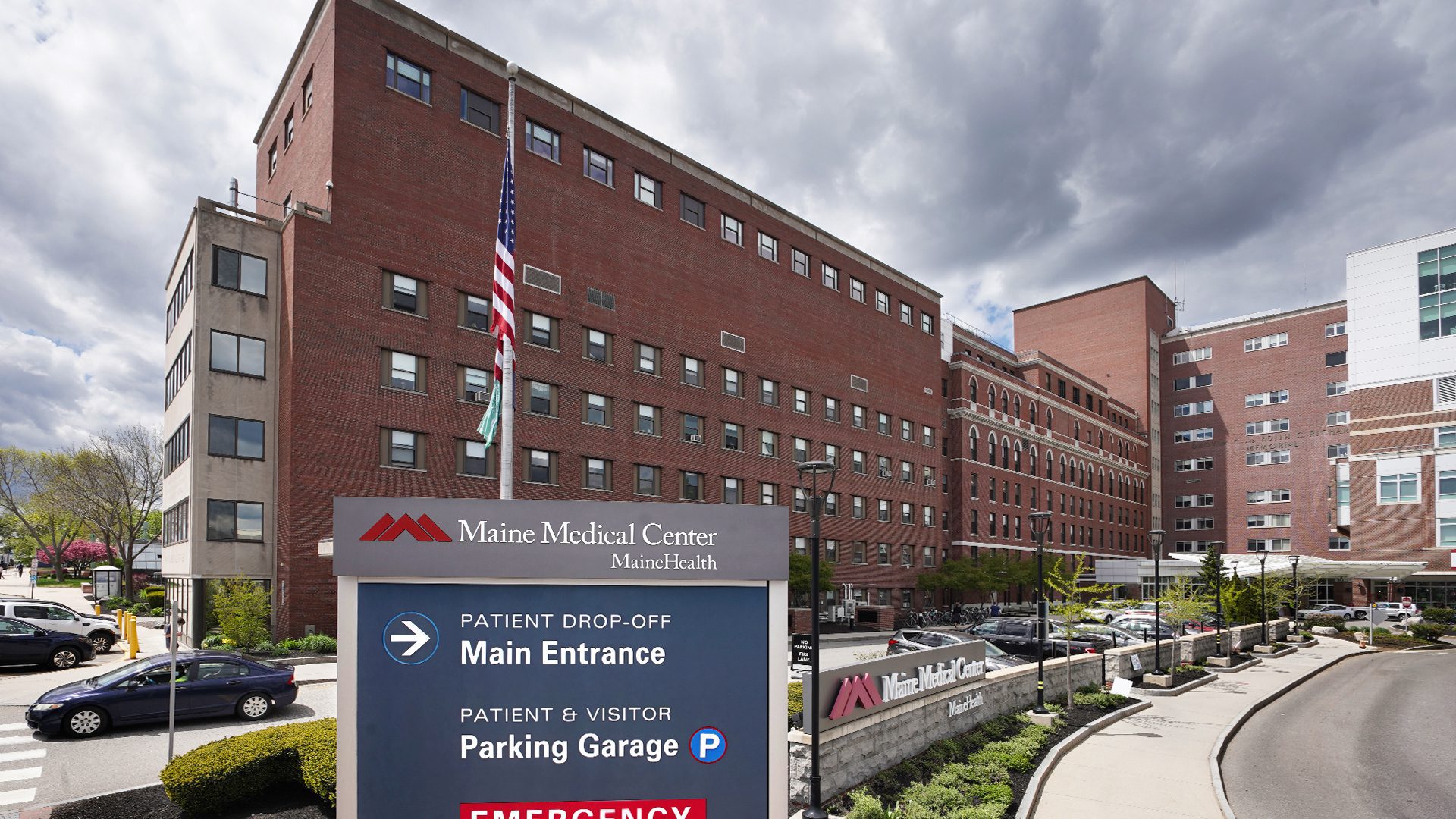Maine hospitals on average will see some of the lowest penalties for patient readmissions in a decade after federal regulators reduced the review period to acknowledge the challenges healthcare systems still face from the pandemic.
Fines for readmissions and hospital-acquired conditions, two areas where hospitals can lose funding from the Centers for Medicare & Medicaid Services, are relatively small, but indicate hospitals where infections and potentially avoidable complications have occurred, or where insufficient care has been provided, causing patients to return for costly services.
Factors ranging from staffing pressures to increased demand for care are to blame, and patient care watchers say the penalties should be a wake-up call to hospitals to focus more on patients’ needs for more affordable and better services in the long run.
The CMS readmissions and hospital-acquired conditions reduction programs were created under the 2010 Affordable Care Act. The agency’s review included 17 Maine hospitals from Presque Isle to York. Certain hospitals, such as those providing critical care, rehabilitation and long-term care, are excluded.
The readmission program reviews how often certain Medicare patients return to a hospital within 30 days of admission within a three-year period and assigns a penalty if the amount is higher than what CMS expects. Hospitals facing readmission fines can lose up to 3 percent of their Medicare payments related to those conditions for a year. The idea is to reduce Medicare spending overall because hospital visits are expensive — the average three-day stay nationally is around $30,000, according to healthcare.gov.
Those penalties are likely lower than what hospitals would have been fined because CMS chose this year to exclude the first half of 2020 from its readmission penalty calculations because of the challenges caused by the pandemic. It also excluded Medicare patients who were readmitted with pneumonia from 2020-23, because those patients can have similar symptoms to COVID-19.
CMS also chose to not give out penalties for hospital-acquired conditions for the 2023 fiscal year — which would have included all of 2020 and half of 2021, according to its final rule and FAQ on the program.
That resulted in 2,273 hospitals receiving readmission penalties this year, Kaiser Health News reported, the fewest since the fiscal year that ended in September 2014. The average payment reduction was 0.43%, also the lowest since 2014.
In Maine,10 hospitals were fined in 2022, two fewer than the prior year, according to Kaiser Health. Of the 12 fined the prior year, nine saw their fines decrease in 2022. The average penalty is expected to be about .16 percent, below the national average. That is the second-lowest average they received since 2013. Fines peaked in 2020 with an average .75 percent reduction.
For hospital-acquired patient safety conditions, hospitals face up to a 1 percent reduction in Medicare payments over 12 months. The most recent patient safety penalties were generated from patient experiences from July 2018-19, prior to the pandemic. The number of Maine hospitals penalized for patient safety went from four to nine from 2020 to 2021 and 2022, according to federal data. The same number of reductions were assigned this year.
The patient safety program focuses primarily on infections, such as catheter-associated urinary tract infections and surgical site infections, and preventable conditions like patient falls and surgical complications. It has been criticized by the American Hospital Association as having inaccurate quality metrics and unfair to teaching, large and small hospitals.
Only two hospitals, MaineHealth’s Franklin Memorial in Farmington and Midcoast Hospital in Brunswick, have received no patient safety penalties in the last seven years, according to CMS data compiled by Kaiser Health News. Penobscot Bay Medical Center, also owned by MaineHealth, in Rockport saw its only deduction in 2021. Three hospitals — Northern Light Health’s Eastern Maine Medical Center in Bangor, Maine General Medical Center in Augusta and York Hospital in York — have received five penalties each from 2015 to 2022, with half of those occurring from 2020 to 2022.
Navneet Marwaha, a senior vice president and chief quality officer for Northern Light Health, said the Northern Light system expects to see “considerable” improvements the next time CMS reports its rate reductions, based on internal data reviews. He said the system has in particular made improvements in pressure injury rates at EMMC, like ulcers and bedsores, by identifying potential patients at risk and preventing skin injuries.
“Current data for patient safety at EMMC shows improvement across various measures that make up this composite score, and we are confident this improvement will be reflected in our patient safety scores for the next reporting period,” he said.
Other indicators show the challenges Maine hospitals have faced – the Leapfrog Group, a national hospital quality evaluator, downgraded almost half of the hospitals in its 2022 report, according to the Bangor Daily News. That organization evaluates hospitals based on similar metrics to CMS along with factors like responsiveness and staffing levels.
But Katie Stewart, the director of health care ratings for Leapfrog, said hospitals have made strides in patient safety over the last decade despite setbacks caused by the pandemic. Maine saw increases in certain infections during that time, according to a U.S. Centers for Disease Control and Prevention analysis, but the state still ranks in Leapfrog’s top 10 for hospital quality, she said.
Three hospitals – AR Gould Hospital in Presque Isle, Cary Medical Center in Caribou and Midcoast Hospital in Brunswick — received readmission penalties each of the past 10 years, according to the CMS data. Conversely, Inland Hospital in Waterville and Maine Medical Center in Portland received just two penalties in the same span, with Inland receiving its first deductions in 2021 and 2022.
AR Gould Hospital, located in rural Aroostook County, serves a primarily elderly population that may not have much social support, Marwaha said. The system lacks staffing for in-home care, and because there is a statewide shortage of long-term beds, many chronic patients are left trying to manage conditions on their own, he said.
The hospital has been assigning specialized providers to work with physicians to identify patients who could be candidates for readmission, and then provide more followup once they return home. That could mean daily phone calls, medication checks or orders for at-home treatments, Marwaha said.
Some hospital systems have seen varying rates of penalties — Midcoast, owned by MaineHealth, had a relatively low penalty of .15 percent in 2016; its reductions have fluctuated every year since and it will receive a .75 percent penalty for the 2023 fiscal year, according to federal data.
Maine Medical Center, MaineHealth’s flagship location, saw penalties of .06 percent in 2021 and .11 percent in 2022. It will receive no penalties in 2023.
Dr. Omar Hasan, the chief quality officer for MaineHealth, said oversight from federal, state and third-party evaluators like Leapfrog can provide helpful feedback. But the programs only measure a specific set of metrics that can then have outsized impacts on CMS ratings, he said.
The system has avoided penalties at Maine Medical because it has focused heavily on analyzing its health records and safety reporting systems to find areas of improvement, Hasan said. For readmissions, that has meant using that data to build up care management in affected areas and address social determinants of health, like poverty, homelessness and food insecurity — which can affect care utilization and drive penalties, he said.
“The pandemic challenged the overall health system in many ways, but we were pleased at how well our processes held up during a time when a great deal of stress was put on the healthcare system overall,” Hasan said.
The increase in penalties is not surprising given the challenges of the pandemic, but Maine has relatively low deductions compared to other New England states, said Amy Boutwell, the president of Collaborative Healthcare Strategies. She pointed to Massachusetts, which saw an average penalty of 1.1 percent in 2020.
There are a few reasons why that may be, she said: Maine is more rural and many of the hospitals focused on in the program are in central population areas. A person driving an hour from Bangor, for instance, may be less willing to make that drive again if they have a question about their care. That could result in lower readmission rates. The fact that half of Maine’s hospitals are not tracked in the program could be another.
“Just because they’re not being measured does not mean they are doing well,” she said.
The increase could also be attributed to a more gradual shift from focusing on reducing readmissions to other metrics of care, Boutwell said. There has been a national policy change to focus more on closing gaps in care and broader quality improvement – not a bad thing overall, she said, but something that might have diluted efforts to reduce admission.
“If you don’t focus on something it’s not likely to improve,” Boutwell said.
Caitlin Andrews covers state government and general assignment stories for The Maine Monitor. Reach her with other story ideas by email: gro.r1753919091otino1753919091menia1753919091meht@1753919091nilti1753919091ac1753919091.








